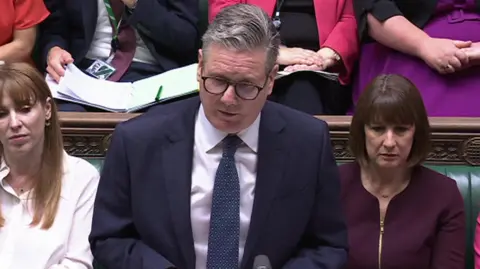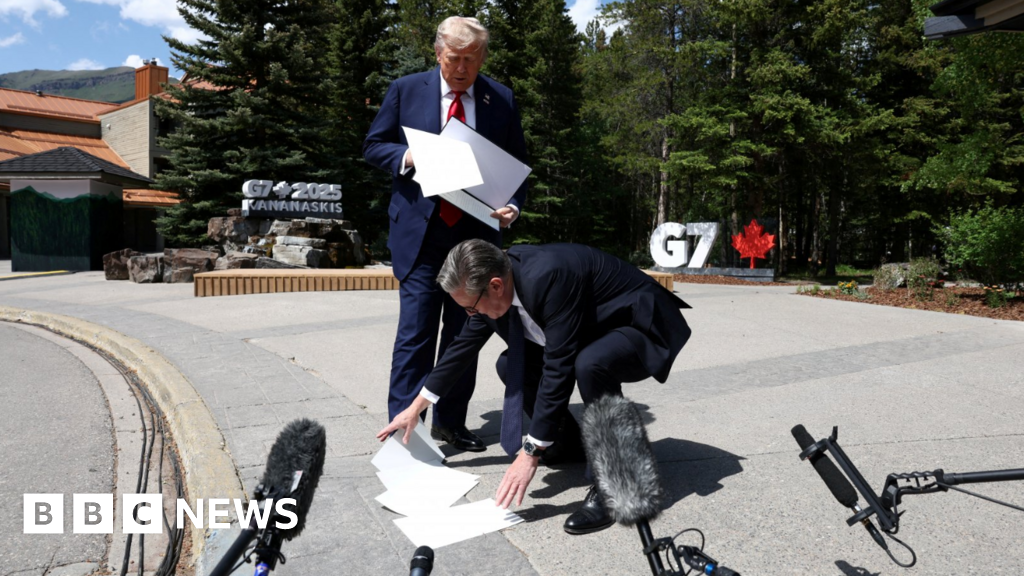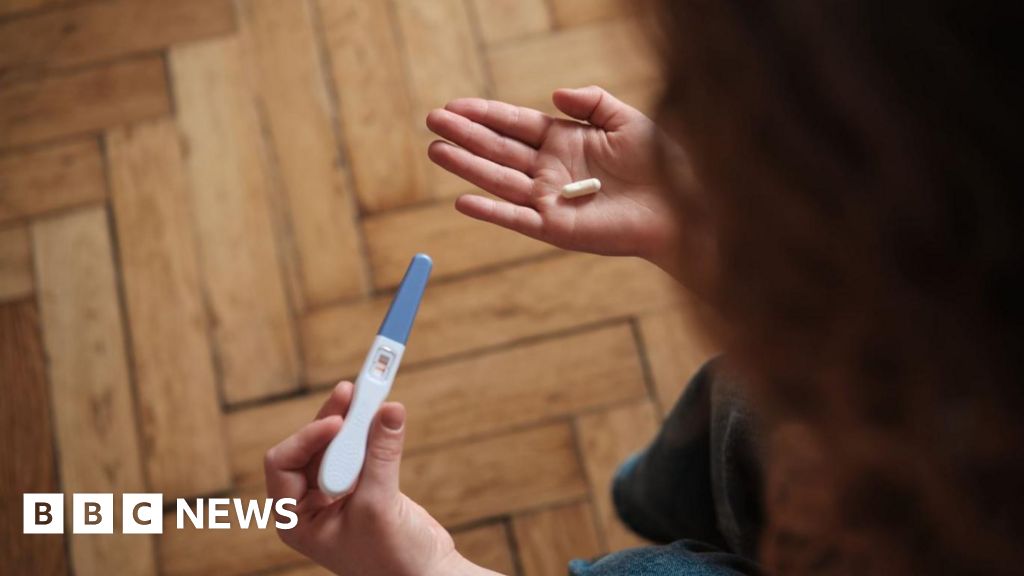ARTICLE AD BOX

 UK Parliament
UK Parliament
Sir Keir Starmer had a gentle introduction to Prime Minister's Questions, as Rishi Sunak asked him to continue the UK's support for Ukraine.
In their first Commons exchanges since the election, the new PM and outgoing Tory leader largely agreed on the need to send military aid to the country.
Mr Sunak, who is due to be replaced in November, avoided asking about any of Labour's domestic priorities after its landslide election win.
But Sir Keir was forced to defend the government's approach to tackling poverty after a rebellion on the two-child benefits limit.
On Tuesday, he suspended seven Labour backbenchers after they backed an SNP call for the limit to be scrapped.
The move was a sign of the new PM's authority after winning a huge working majority, but risks further widening a rift with MPs on the left of the party.
Sir Keir was greeted with a huge cheer from his own side as he arrived for his first PMQs since entering Downing Street earlier this month.
Continuing a theme since his election drubbing, Mr Sunak cracked a self-deprecating joke that he was “not the first person" British athletes heading to Paris for the Olympics would want to consult on how to win.
It elicited pitying sighs from Labour's enlarged cohort of MPs, struggling to fit on the green benches on the government side of the House of Commons.
He then used his six questions to ask Sir Keir about Ukraine and national security issues, subjects where the two main parties are heavily aligned, in a sign he may have wanted to avoid further Labour attacks on the Tories' record.
Tempest talks
Mr Sunak pressed the prime minister to continue discussions with Saudi Arabia about joining a joint project with Italy and Japan to build a new fighter jet, adding it was "crucial sovereignty capability".
Sir Keir said he wanted to build on "progress" in talks on the Tempest jet programme, which he described as "really important".
The prime minister has sidestepped questions about whether a recently-launched review could see the UK end its participation in the project, amid reports there are concerns among officials about rising costs.
Sir Keir also said he wanted to maintain "unity” on support for Ukraine, after Mr Sunak asked whether he would respond to new requests for weaponry.
Benefit cap rebellion
Mr Sunak also said the Conservatives would support the Labour leader if he deemed it necessary to take military action without consulting Parliament.
Sir Keir supported multiple rounds of strikes against Houthi sites in Yemen under the last government, and did not join the Lib Dems, SNP and Plaid Cymru in calling for Parliament to get a vote on the military action.
Commons votes have been held on most armed interventions since the 2003, but there is no legal requirement for PMs to get approval from MPs.
Elsewhere, Sir Keir was forced to defend the government's strategy to tackle child poverty after he suffered a rebellion over the two-child benefit cap.
The policy, introduced by the Conservatives in 2017, prevents almost all parents from claiming Universal Credit or child tax credit for more than two children.
Labour's landslide election win has led to renewed calls for it to be scrapped from some MPs, charities and anti-poverty campaigners - but the government has said it will not make an "unfunded" commitment to do so.
SNP Westminster leader Stephen Flynn called on Sir Keir to change course, noting former Labour PM Gordon Brown's support for a change in policy.
The prime minister replied that his government was taking steps to reduce poverty through its plans for primary school breakfast clubs and abolishing no-fault evictions for private renters.

 10 months ago
33
10 months ago
33








 English (US) ·
English (US) ·